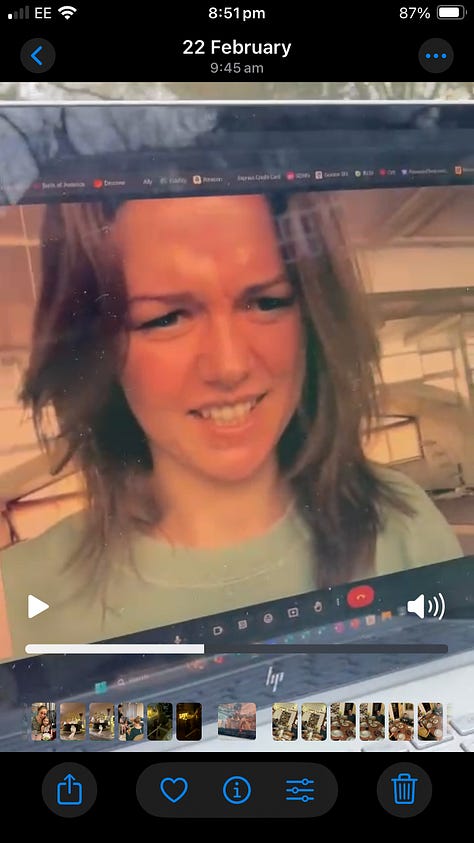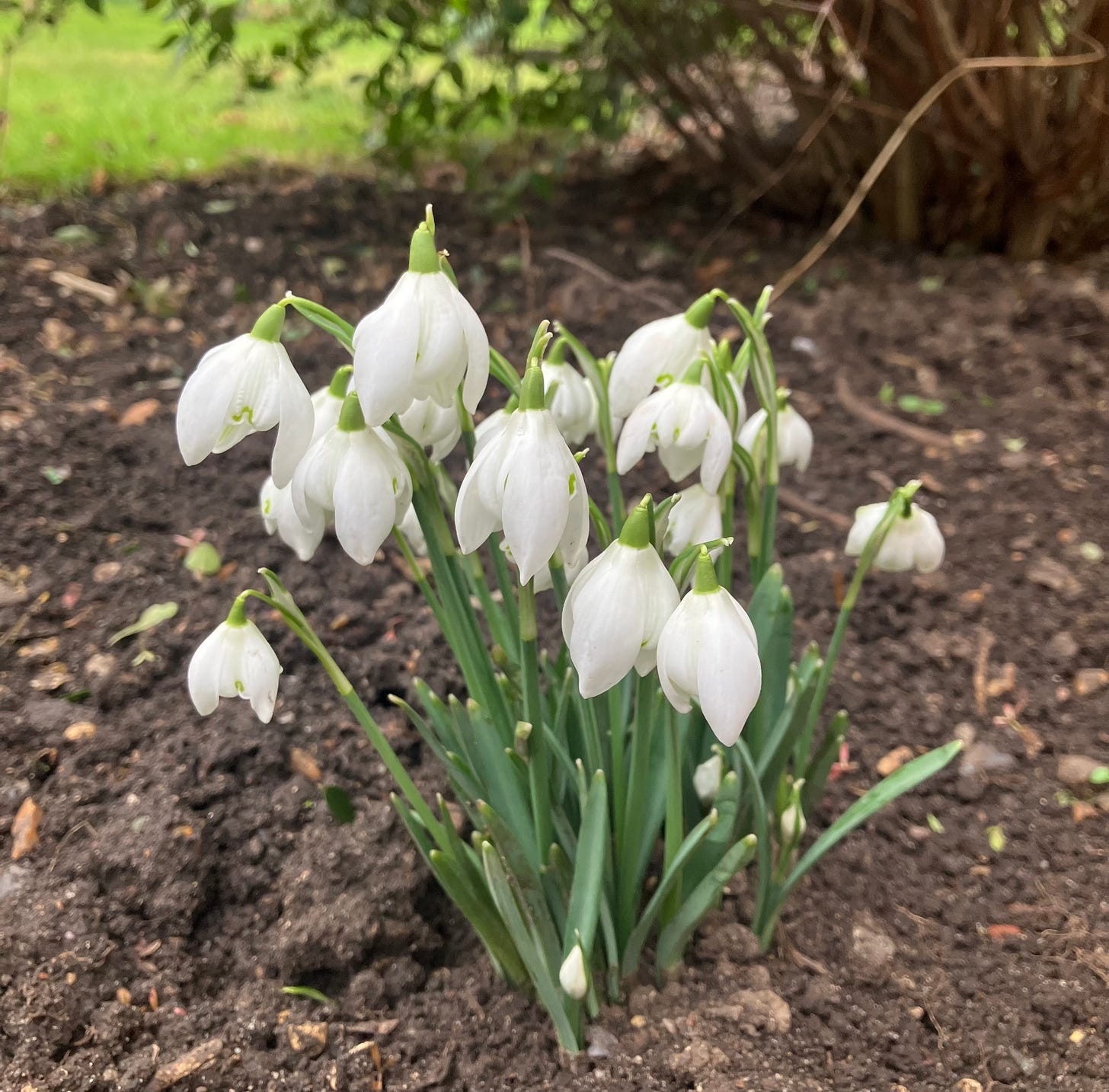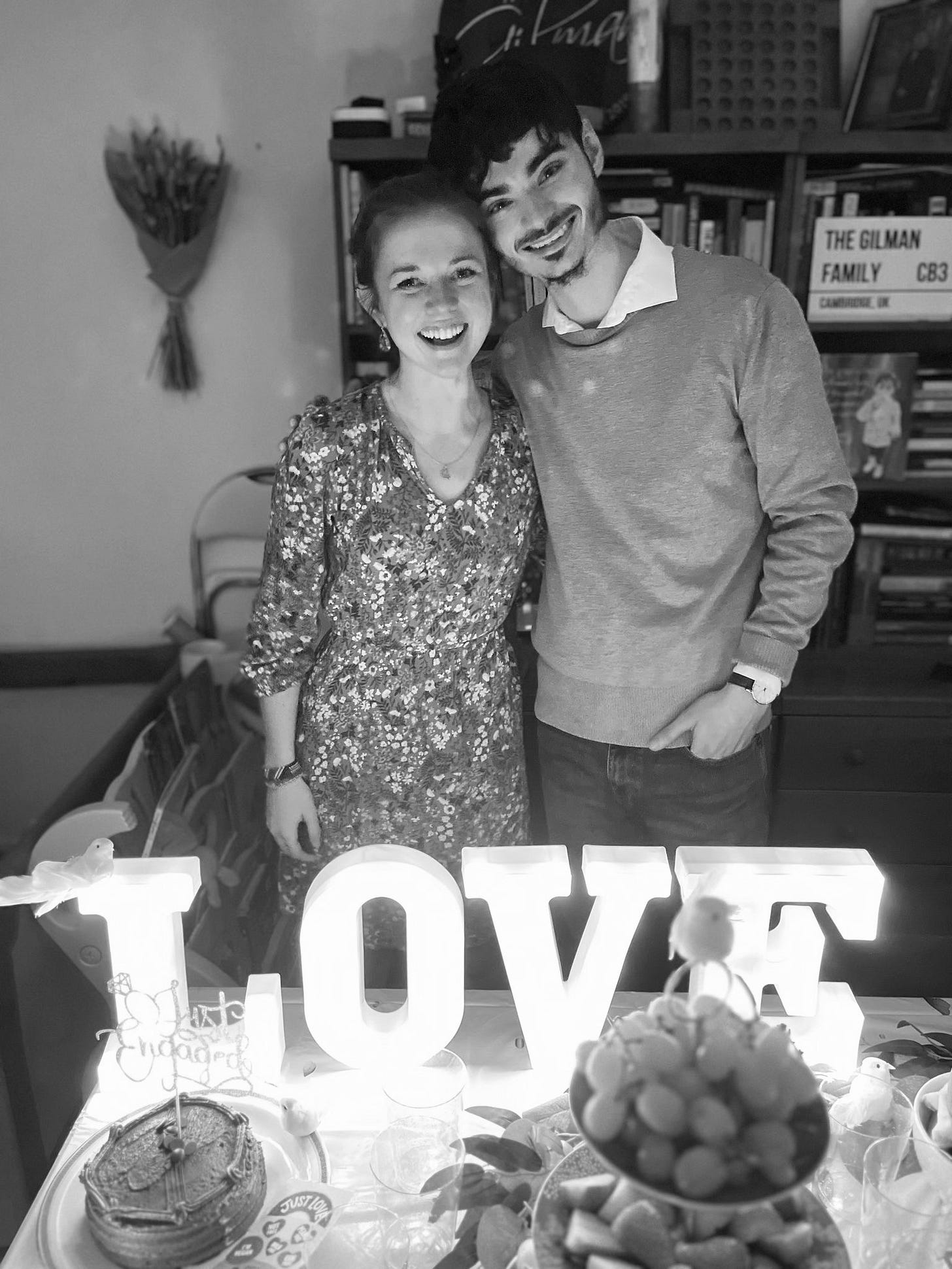A love story
I’m pretty cerebral, and my mind thrives on abstractions. (For anyone who has no patience for such things or such people, keep reading—I promise it’ll get better.)
Witness, for instance, my wide-eyed, hand-waving demonstrations of my current mind map to my poor conversation partner who simply asked how my day has been. Even I roll my eyes at myself each time I mention ‘existential implications,’ ‘deep structure issues,’ ‘hermeneutical frameworks,’ and the like.
This penchant for the abstract readily inclines towards, and can even be advantageous for, theological reflection. However, it does not necessarily follow that my functional theology—the theology reflected in the way that I respond to situations and navigate the complexities of decisions and relationships—always aligns with what I would theorise and articulate.
In fact, I would maintain that all of us need to subject our functional theology to regular prayerful scrutiny. We need to ask the Lord to help us perceive our own inconsistencies and to wrest our hearts into alignment with his truth such that our lives can gradually be formed into holy reflections of what we profess to be true.
Before I wax ineloquently in terms ironically too abstract to be useful, let me tell you a story to illustrate a way in which the Lord has gently been refashioning my functional theology. Actually, let me tell you a love story.
I met Isaac three years ago. In the spring of 2022, my last semester of seminary at Gordon-Conwell in Massachusetts, I worked as a teaching assistant for an online introductory Old Testament (OT) course. Joining that course from North Carolina was a student who works full-time in finance, grew up in a religious Jewish home, put his faith in Jesus as Messiah at age 16, and now studies biblical and rabbinic literature with voracious curiosity and formidable discipline in his spare time. Yes, that student was Isaac (and the course was way too elementary for him—I know because I graded his exams :).
When I introduced myself to the class virtually at the beginning of the course, Isaac was evidently intrigued enough by me (in addition to the Bible) to ask if I’d be interested in studying the OT in Hebrew with him periodically during the semester. Resonating with his enthusiasm for the OT, I agreed. Once a month we got on a call to marvel with one another at glorious gems we were uncovering and pondering from the Hebrew Scriptures—in a totally platonic way, at least to me. Apparently I didn’t realise that ‘do you want to read Hebrew together?’ was a pick-up line, but it worked on me well enough for this pattern of study to develop (and Isaac kept our teacher-student relationship kosher by confining it to study during the course). Over several months, we formed a friendship on the foundation of our shared love for deep study of the Scriptures and the desire to live those Scriptures.
After the course ended, Isaac tried to move our friendship in a different direction. And I (wince) turned him down, having never met him in-person and preparing to move to Cambridge in the coming autumn. But because of Isaac’s thoughtful maturity in response, it was easy to remain friends, so we caught up every few months for the next year and a half as I started my PhD. In November 2023, we met in-person for the first time at a Bible conference (classic) in the States and had a couple of conversations in group contexts. Still platonic. And genuinely delightful to meet this friend in three dimensions finally.
Fast forward to January 2024. I was in the throes of what I describe as the Lord’s laying upon me a divine imperative to pray strenuously about the state of my heart. I could sense coming back to Cambridge after Christmas that soon I would start considering where to head post-PhD. And importantly, I could anticipate that there would be an array of voices, internal and external, crying for a hearing and claiming to offer guidance. Each voice would present a vision for the future that would reflect a certain value system, though not all voices would be trustworthy guides. Not all voices could or should be heeded. I desperately wanted to hear God’s voice through the din of my own priorities, fears, and longings and other people’s opinions. So I determined to pour out the contents of my heart in prayer and invite the Lord to sift them, purging whatever did not please him and refining whatever did.
During that process, it seemed to me that I needed to grapple with the prospect of moving abroad to teach long-term in a cross-cultural context with fewer resources for theological education—the sort of thing I’d already been doing and enjoying short-term. Soon I became uncomfortably aware that a fear of being lonely was naggingly raising its voice within me. As someone who has experienced a fairly high concentration of solo transitoriness in recent years, I know in my bones what it feels like to drop by yourself into a completely new setting. I know that strain of not knowing others substantively and being unknown for longer than one would like, the default of being alone when everyone else goes to their homes. To sign myself up for that sensation, committing to a place and people for an indefinite length of time where I would also have to contend with language and culture barriers, was daunting, to say the least.
But it was also appealing, for many worthy reasons. And I felt compelled in prayer to surrender my fear of being alone to the God who would go with me and would be enough for me each day. The God whose provision I couldn’t quite project in its specificity but could unquestionably rely upon. Welcome to the life of faith.
I distinctly remember a particular time of prayer in February 2024 in which I renewed my vow of unconditional obedience to Jesus, whatever that would mean for my life. I told the Lord that I was willing to go anywhere, though it felt intimidating and lonely, but only if he convinced me afresh in the depths of my being that he calls me his beloved. I knew that any reason for going other than the soul-gripping, never-failing love of God would be insufficient, sapping for my stamina and toxic for my ministry. So I asked God to woo me again.
At that time, I started moving forward in conversations with the Greek Bible College in Athens to explore the possibility of my joining their faculty after Cambridge.
And I also started to become interested in Isaac in a no-longer-strictly-platonic sort of way. . . Over time, I had observed him to be uncommonly kind—a telling gauge of character, in my view—and strikingly serious about discipleship. His brilliance exhibited in a rabbinic Hebrew reading group we started (and he taught) in April 2024 may or may not have also had something to do with my newly raised eyebrows.
But such a thought was absurd, I told myself. After all, I currently live in England and was plotting a move to Greece. Ellie moves east, not west. Also Isaac and I had a solid friendship but had never lived in shared community, so there was much we couldn’t have yet learned about each other. Nonetheless, once the proverbial penny had dropped in my mind, the thought didn’t go away. Eventually I let it hang out in my mental background without trying to quash it, mentioned it to a couple of friends, and continued the process of discerning whether I would move to Athens.
By May, I felt sufficiently resolved about moving to Athens to seek out a missions organisation, which I soon joined. And I was simultaneously feeling that I needed to bring up my evolving interest in Isaac to Isaac, in case he was starting to wonder about how I saw our friendship given that the reading group had increased our contact. Though I had no idea if he would still be interested in me after two years, or if he had dated or was currently dating anyone else, I now felt that I’d be keen for more frequent and intentional conversation with each other if he was also keen. Convinced that clarity is kind and assuming he would politely decline for all the obvious reasons, I told him on a video call during his lunch break one Wednesday that, if I could go back two years, I would give him a different answer. (Bear in mind that I dropped this bombshell on the poor guy after I had already informed him that I was planning to move to Greece and we had discussed Joshua and Judges for an hour.)
Isaac was understandably taken aback and asked for a bit of time to pray and process with others in light of other circumstances in his life at the time. Twelve days later, we started talking / dating (precise terminology depends on whom you ask :) across an ocean. In late August, he flew across that ocean to visit me in Cambridge, which was our second time ever being in-person and first time in-person as a couple. We entered his visit optimistic and emerged surprised that the time together had managed to exceed even our optimistic expectations. We also registered the gravity of how well the relationship seemed to be going and where it might be trending. Isaac and I were together for several weeks in the States over Thanksgiving and Christmas, including his initiation into the marvellous and colourful cast of characters in my family.
Then on Friday, 21 February, 2025, I took a break from dissertation editing in the library to hop on a video call to study Habakkuk with Isaac for a little bit while he took a break at work. In my mind, he was working at the office that day and would be boarding a plane the following Monday night to arrive in England Tuesday morning. But when I got on the call, I saw that he was outside in a garden. After a bewildering 40 seconds in which I tried to figure out what was going on when Isaac flipped his camera around to show me the side of my house, I eventually clocked that he was sitting in my backyard.



Completely stunned, I sprinted through the library to gather my things and then sprinted home. Isaac gave me a hug and courteously waited for my pounding heart to settle down. Then he led me under a tree, dropped on a knee, and asked me to marry him. If memory serves, I think I exclaimed, ‘Finally! Yes!’ and didn’t really pay attention to the beautiful ring he was holding until he reminded me that he was supposed to put it on my finger. We had a glorious nine days of celebrating our engagement with friends and savouring time with one another before he crossed back over the ocean.
Believe it or not, that was a truncated version of the story so far. And it’s only my side. Isaac has his own side. But from where I sit, this story has left me perpetually in awe at what the Lord has orchestrated that I could never have dreamt up.
I’m very cautious early in a relationship to use spiritualised language, not wanting to baptise my own will or feelings in divine sanction and prematurely introduce charged rhetoric that could harm the other person. However, as time elapses and the story unfolds, it often becomes increasingly clear how the Lord is leading. Now, looking back from the vantage point of engagement, I can see that the Lord’s hand has undoubtedly done this: from impeccable timings, to the compatibilities we’ve discovered along the way, to community confirmations, to the mutual sharpening and potential for fruitful kingdom partnership we’ve been noticing.
Let’s return to my functional theology. While I would have always affirmed that God has his hand on history, sovereignly directing all things according to his purposes, my internalisation of the fact that his hand is therefore minutely and continuously directing the affairs of my life is often somewhat lacking. If I’m honest, I think that this variety of disconnect between professed and functional theology is typically due to an emotional self-protection instinct. That is, if I try to distance who I believe God to be from the gritty stuff of my life, I think I can insulate myself from disappointment or disorientation when my circumstances turn out to be perplexing and painful, not easily squared with my principled affirmation of the Lord’s goodness. (Can you hear the Joban echoes? How graciously fitting that the Lord has plunged me into that text for over two years!)
The dynamic I’ve just described is symptomatic of a deficiency in trusting the Lord, not indicative of pragmatism or savviness. If I functionally disconnect the good and sovereign God of the Bible, the God whose character I learn to affirm, from the God responsible for my circumstances, I leave myself ill-equipped to wrestle from faith and towards faith when his hand takes away what I count precious. But equally, I leave myself unprepared to receive the sweet gifts that his hand gives.
My instinct is to avert my eyes and depersonalise God’s act of giving when he tries to make his love concrete for me, lest I start becoming attached to things that might be taken away again and start attaching my assessment of his character to my fickle circumstances. God, after all, doesn’t owe me anything.
Yet he promises much. And he fundamentally gives us himself. If I avert my eyes when he shouts or whispers his love a thousand times a day in real time and space, how will I be able to cope with God getting on a cross for me? How will I be able to have the love of the one who pours out his life for his people remake me as it can, as it must? How will I be able to take to heart his unstoppable will to bless his beloved?
I asked God to woo me a year ago. For me, in this case, as soon as I relinquished my fear of being lonely—with a trembling but open heart—the Lord handed back to me what I had just surrendered, beautified beyond what I could have imagined. It did not have to be through marriage that God met me in that desire for companionship; the Lord has also lavishly shown me the riches of Christian friendship over the years, and I will continue to need and cherish friendships.
Yet in this case, the Lord chose to teach me something about the generosity of his love by bringing a man of extraordinary calibre to be my partner for life, a man who will continue to incarnate something of the Lord’s love for me as I seek to do the same for him. The Lord has given me an exceedingly good gift named Isaac and insisted I recognise that the divine hand—the same mighty hand of the exodus and scarred hand of the second exodus—has done it.
God locked my eye, started pouring into my cup, and never stopped pouring as it overflowed.




